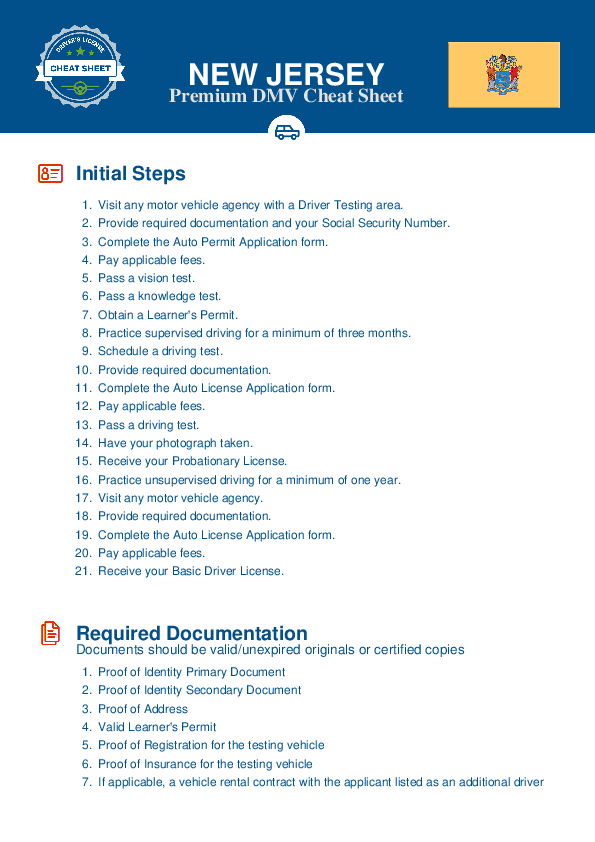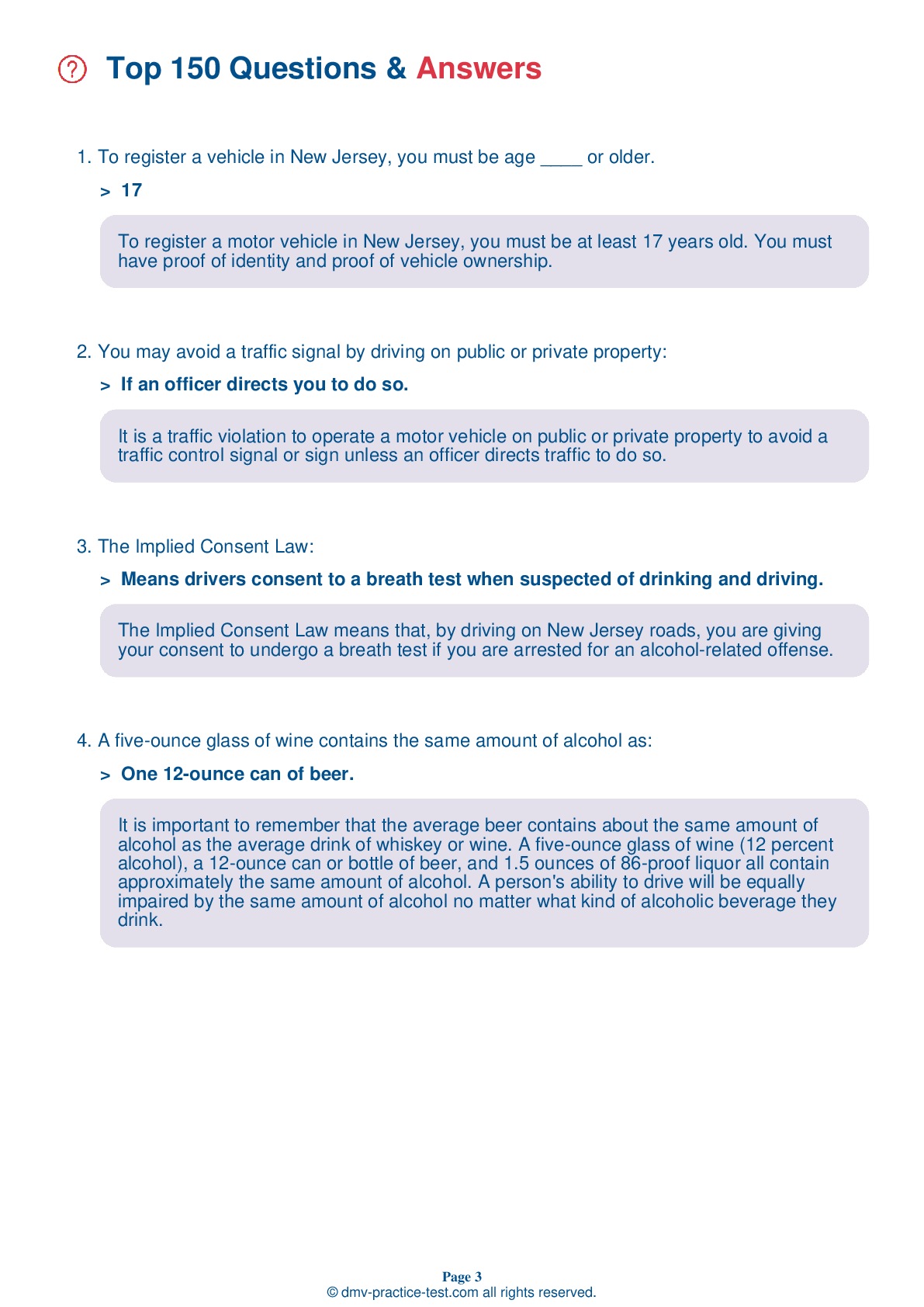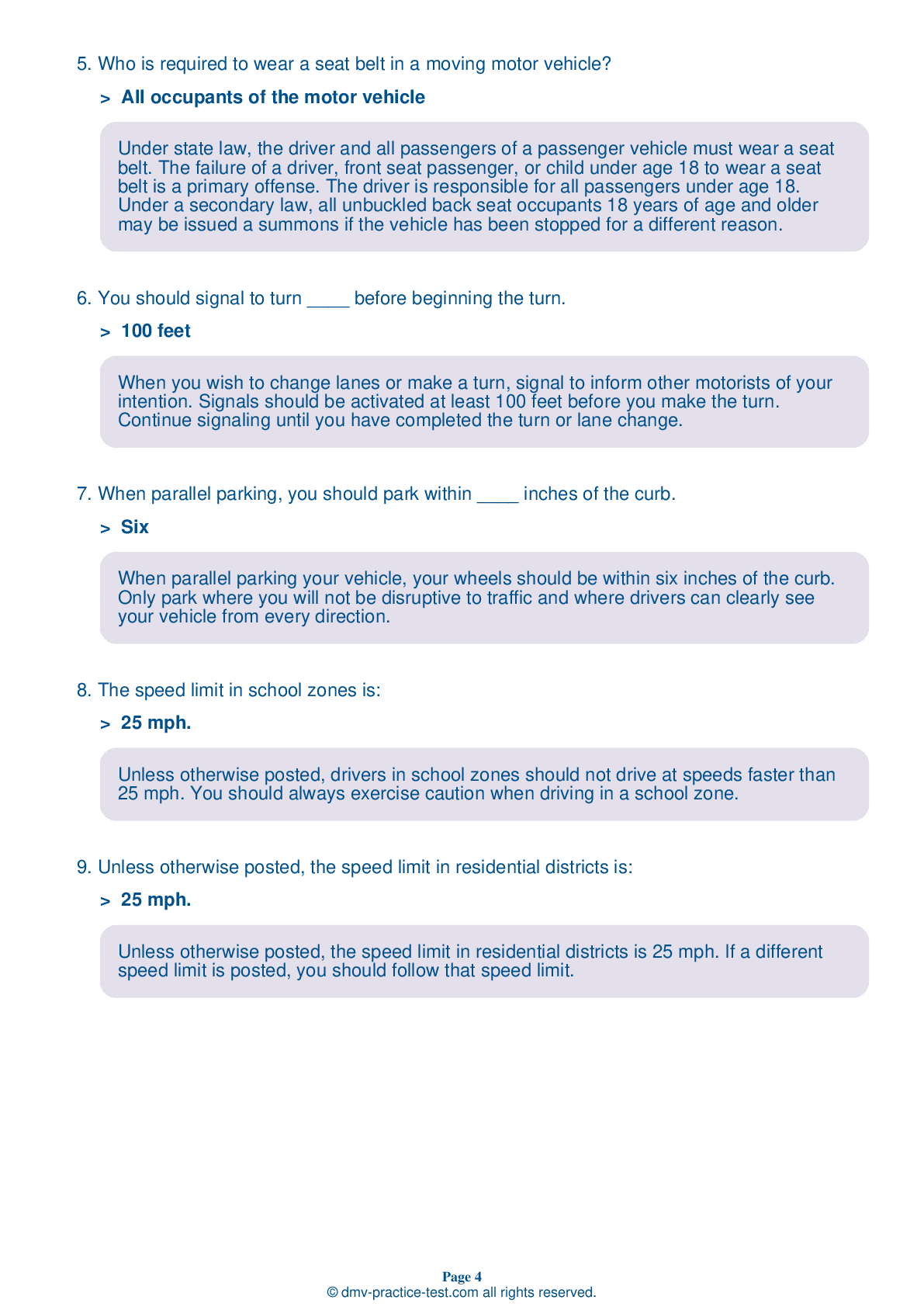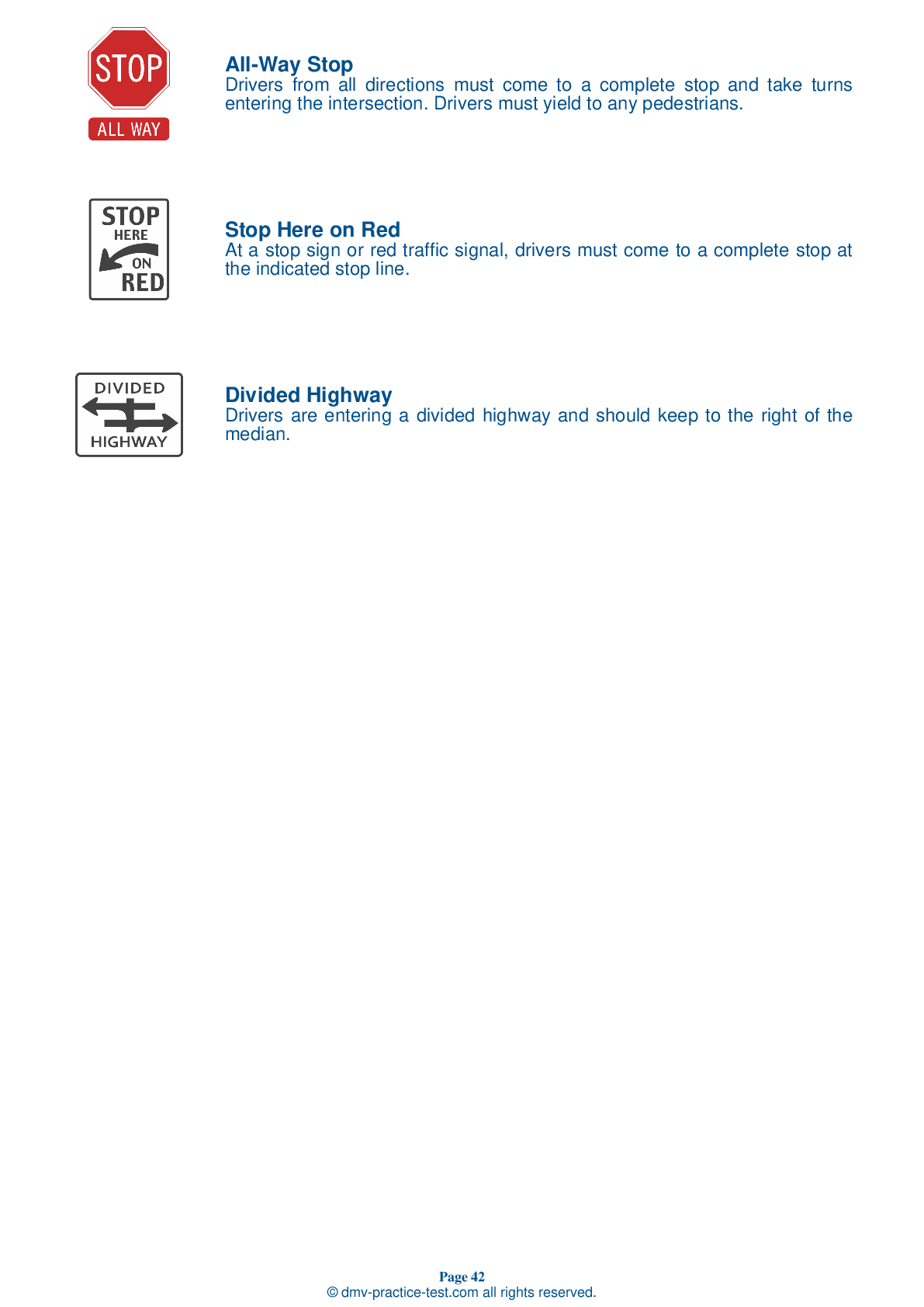FREE New Jersey DMV Practice Test #11 Page 4 of 7
New Jersey's DMV practise examinations have been revised for January 2026. It includes questions based on the New Jersey Driver Handbook's most essential traffic signals and regulations for 2026. Use actual questions that are very similar (often identical!) to the DMV driving permit test and driver's licence exam to study for the DMV driving permit test and driver's licence exam.
On the practise exam, each question gets a tip and explanation to help you remember the concepts. The written component of the official New Jersey DMV test will include questions about traffic rules, traffic signs, and driving statutes, as well as knowledge from the Driver Handbook.
To obtain a passing grade, you must correctly answer 40 of the 50 questions. Take this practise test from the New Jersey Department of Motor Vehicles to help you prepare for your instruction permit or driver's licence.
The DMV exam is available in several languages.
Using any kind of testing assistance will result in an automatic fail, and the DMV may take additional action against your driver's licence, so stay away from it.
22 . When two vehicles arrive to an intersection at the same time, which one has the right-of-way when no signs or signals indicate rules?
At an intersection of two similar roads without a traffic control device, a driver must yield to a vehicle approaching from the right.
23 . You experience an incident at work that has left you feeling angry. When you get to your car, you should:
Persons who are upset, angry, or otherwise distracted by their emotions should take time to cool off before driving a car. Taking out frustrations or anger while driving is exercising very poor judgment and is very dangerous to both the driver and others on the road.
24 . The effect that lack of sleep has on your safe driving ability is the same as:
Fatigue and being under the influence of alcohol have similar effects on your ability to drive safely. For example, being awake for 18 hours impairs your driving about as much as a blood alcohol level of 0.05 percent. Being awake for 24 hours in a row has the same effect on your driving as a blood alcohol level of 0.10 percent.
25 . When passing other vehicles:
Before passing another vehicle, check your mirrors and blind spots. Before changing lanes, activate the appropriate turn signal. Re-enter the lane when you can see the front of the passed vehicle in your rearview mirror.
26 . On slippery roads, you should:
You should slow down at the first sign of rain, snow, or sleet, all of which can create slippery road conditions. When conditions on the road are less than ideal, safety may require that you drive more slowly than the posted speed limit.
27 . This sign is used to warn drivers:
.png)



